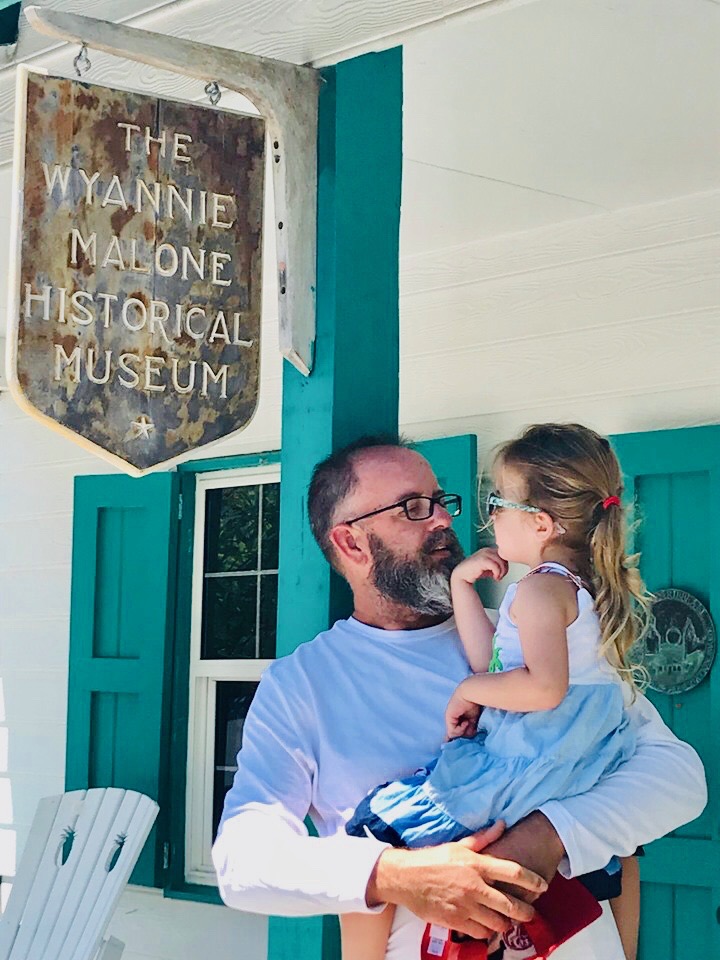
Brian Malone is a dear friend and a Bahamian whose immediate family is about to have a horrific experience caused by Hurricane Dorian. Brian’s parents and relatives live in Hope Town on the Abaco Islands which is part of the Bahamas. Category 4 and 5 hurricanes are terrible freaks of nature, but living through 24 hours of it will undoubtedly make an impact on the psyche of his relatives in harm’s way of Dorian.
Meteorologist Rocco Calaci’s afternoon newsletter from yesterday does not bode well for our friends in the Bahamas:1
As of 3:00PM CDT, Dorian had sustained winds of 150 miles per hour with gusts to 190 miles per hour. As the storm continues to slow down, prior to turning northward, Dorian could hit Category 5 for a brief period of time. Fortunately, this will occur with Dorian well away from the Southeast, but the Bahamas will get blasted over the next 24 to 48 hours.
We have written about the emotional trauma people and communities suffer who go through hurricanes and major catastrophes:
https://www.propertyinsurancecoveragelaw.com/2012/08/articles/hurricane-katrina/the-emotional-impact-of-catastrophes/
https://www.propertyinsurancecoveragelaw.com/2010/05/articles/insurance/tennessee-floods-and-the-emotion-of-disaster/
https://www.propertyinsurancecoveragelaw.com/2014/11/articles/insurance/survivor-to-survivor-listserv-helps-policyholders-with-the-emotional-side-of-a-property-loss/
https://www.propertyinsurancecoveragelaw.com/2011/01/articles/insurance/winds-over-bolivarstories-of-texan-toughness-following-hurricane-ike/
https://www.propertyinsurancecoveragelaw.com/2019/04/articles/consumer-protection/florida-leaders-must-remember-hurricane-michael-policyholders/
Brian told me the story of his Bahamian cousin who survived Category 5 Hurricane Floyd. His cousin obviously was suffering from post-traumatic stress syndrome and was convinced that large rats were going to eat everybody. He thought that the plague was going to come up from the ground and kill them all. This irrational belief is not laughable because each person is uniquely impacted and carry the disaster with them as we noted in stories above.
We can educate ourselves about Post Traumatic Stress and how to help our relatives, friends and those suffering:
PTSD can take a heavy toll on relationships. It can be hard to understand your loved one’s behavior—why they are less affectionate and more volatile. You may feel like you’re walking on eggshells or living with a stranger. You may have to take on a bigger share of household tasks, deal with the frustration of a loved one who won’t open up, or even deal with anger or disturbing behavior. The symptoms of PTSD can also lead to job loss, substance abuse, and other problems that affect the whole family.
It’s hard not to take the symptoms of PTSD personally, but it’s important to remember that a person with PTSD may not always have control over their behavior. Your loved one’s nervous system is “stuck” in a state of constant alert, making them continually feel vulnerable and unsafe. This can lead to anger, irritability, depression, mistrust, and other PTSD symptoms that your loved one can’t simply choose to turn off. With the right support from friends and family, though, your loved one’s nervous system can become “unstuck” and they can finally move on from the traumatic event.1
It is hard to predict the path of a hurricane. It is not so difficult to predict the physical and emotional harm caused by these monsters. While this blog and what our law firm does is primarily about financial recovery, it is important for everybody to understand that emotional recovery is just as significant.
Thought For The Day
The conflict between the will to deny horrible events and the will to proclaim them aloud is the central dialectic of psychological trauma.
—Judith Lewis Herman
____________________________________
1 https://www.dailyweathernewsletter.com/
2 https://www.helpguide.org/articles/ptsd-trauma/helping-someone-with-ptsd.htm



